Scratch building model railways, buildings, provides me both pleasure and satisfaction. Not locos, goods wagons or coaches, the current r-t-r are more than good enough for me, but buildings. For more than 50 years or so, this has been my pleasure, a long lived one. In fact there are on the current layout 34 or so of my scratch-built efforts with some dating back to the late 1960’s. They are long lived.
The materials I have always used, and seen no need to change, are good quality card and obechi stripwood secured with white glue. The card I get is usually offcuts from picture framing shops. To cut it I use single sided razor blades. The other tools are a metal straight edge, a 12” rule, a set square, 2H pencil and a cutting board.
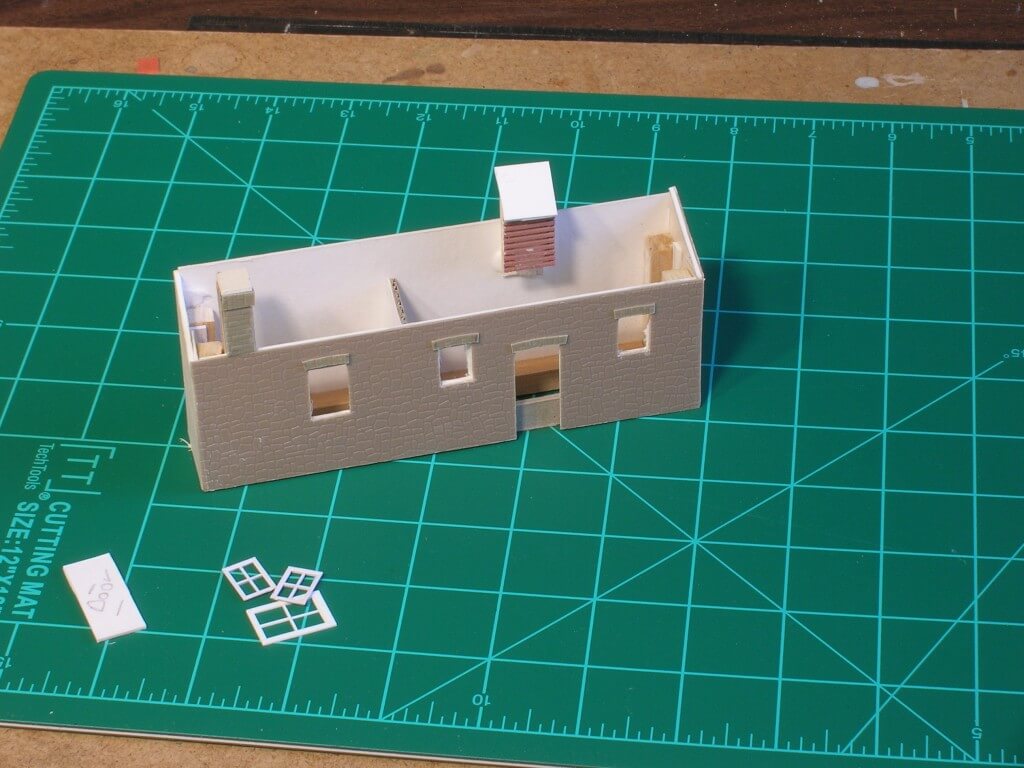
SYD 034(2) Card substructure cut out, window and door apertures braced and assembled, Slaters Plasticard stuck on.
In early days I used Hamblings and Superquick brick or stone papers but now for all those I built for Hintock I use Slater’s plastic products that I can paint. That is cheap artist’s acrylic and comes in all manner of colours. Nor do I use the supposed ”authentic” colours. Colour is affected by so many things, how old, how new, how worn, how has it fared in prevailing climatic conditions, how by being in a clean/dirty environment, what is one’s own appreciation of colour are but some examples. In any even those “exact” coloured matches are very expensive. My finished colours are near enough for me.
As already noted none of my buildings have an exact prototype and for none have I prepared plans beforehand. It is all done by eye. Here, if in doubt, I make a mock up to see how it would fit in. None are exact, none are from for published plans. I consider proportion far more important. And none I even start without knowing what windows I shall use. Those I consider one of the most important character giving elements in any building along with gutters, downpipes and doors. Roofs too play an important part for these are invariably looked down upon.
I accept that I am fortunate in these respects because my professional work was much concerned with the nature of all classes of buildings and their uses. I too am reasonably familiar with the particulars of building construction. But all that besides in every public library will be found books on the subject and from which knowledge can be gained. And in many a hobby magazine there are articles on the subject. One of mine recounting in detail I went about building the HFTS warehouse will be found in the RM for May 2013 at p 384 “A Warehouse for Hintock.”
The images show some steps along the way in building the GWR stables. All my buildings and structures follow the same scratch building principles. Shown below, the stables are finished and installed. A nice little arrangement. I was very happy with it.
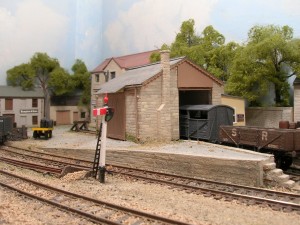
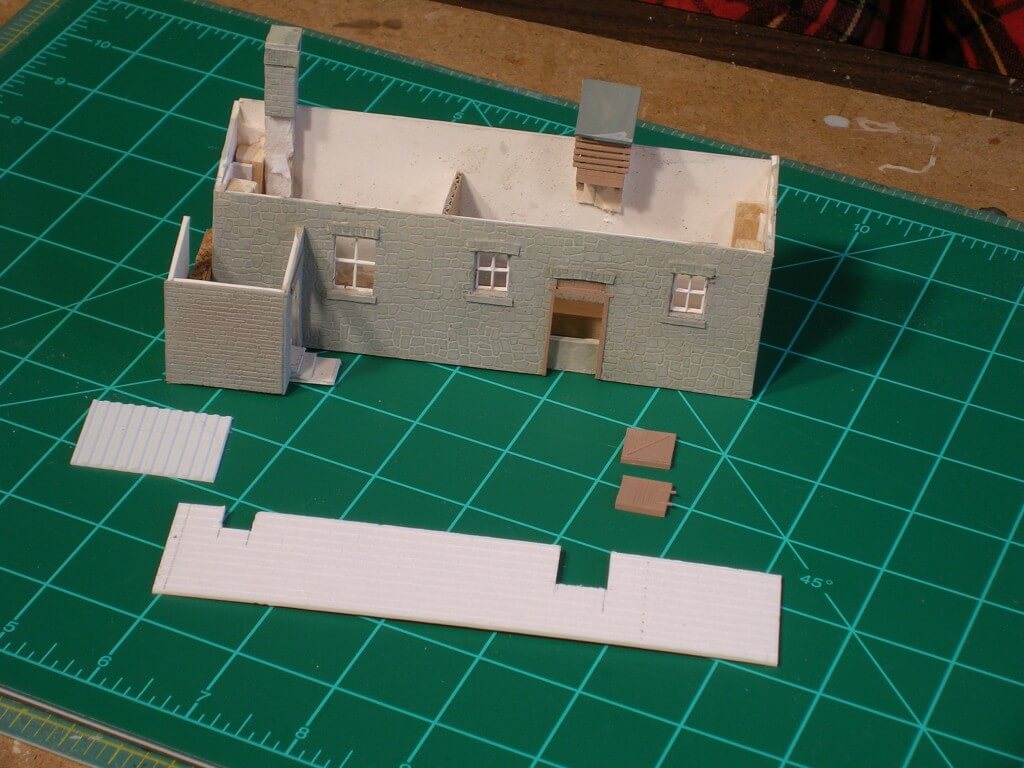
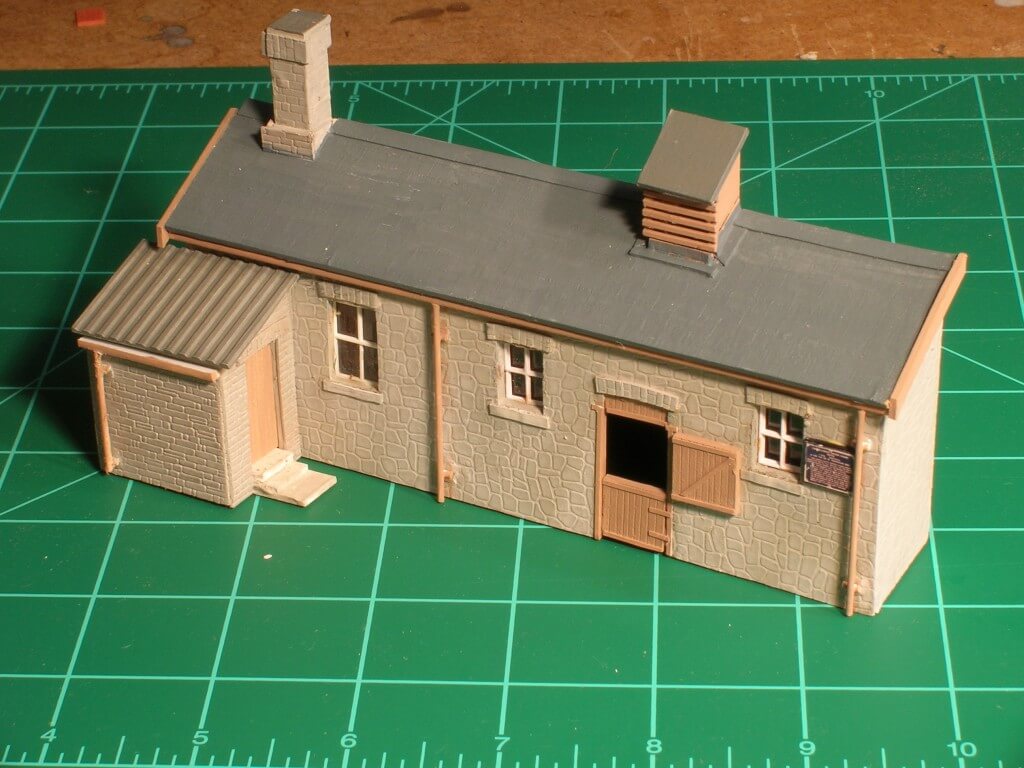
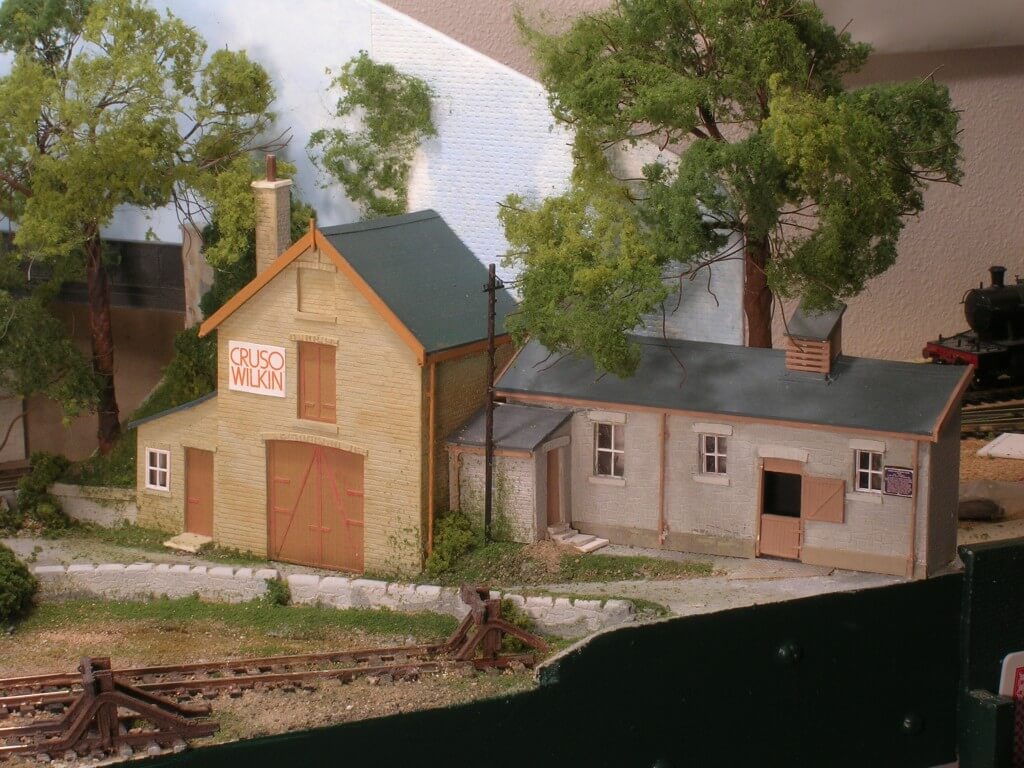
Lovely building and the overhanging trees are a perfect addition which I haven’t seen very often on layouts. Great work John thanks for sharing.
I was truly delighted to find Hintock while searching for joint GWR/SR lines. I am in the process of creating a ( very) small N gauge layout to incorporate some GWR and SR locos and rolling stock that I had obtained second hand from Ebay and a local model shop. It is not prototypical, and is intended to be more of a ‘model village with trains running through it’ rather than a realistic operating railway, though I do want it to look convincing!
Your scratchbuilding is impressive, a very pleasing layout.
Thanks for the comment. My dad John Flann passed away. As I ran the website for him, I kept it up in honor of him. I am glad you found it useful.